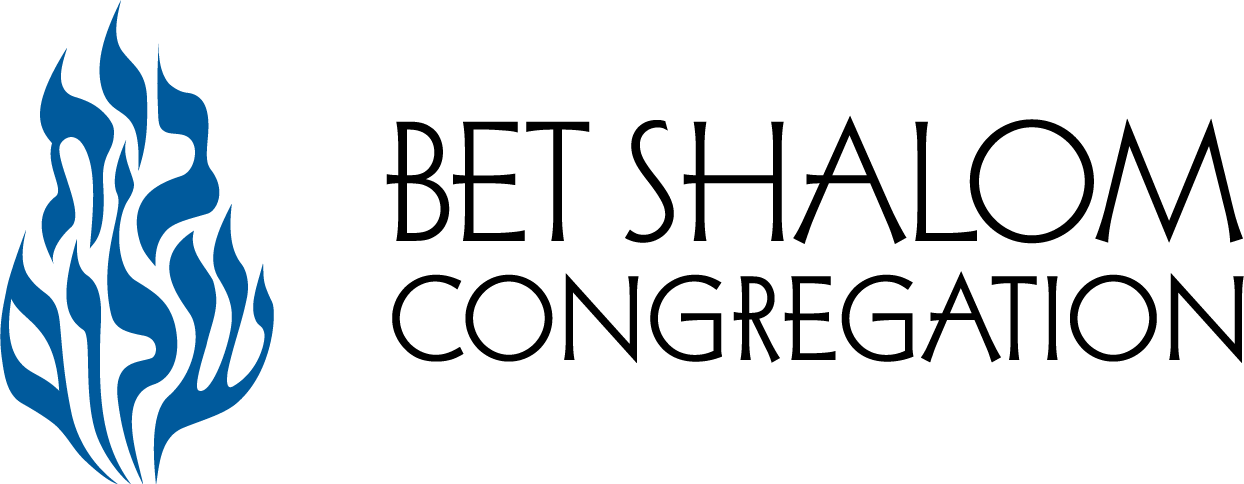You may wonder why a Jewish congregation should be involved in climate justice. The Torah says:
“And God blessed them. And God said to them, “Be fruitful and multiply and fill the earth and subdue it, and have dominion over the fish of the sea and over the birds of the heavens and over every living thing that moves on the earth.”
As Jews, this means we have an obligation to respond not only to the current climate crisis, but to climate justice.
Climate justice connects the climate crisis to the social, racial and environmental issues in which it is deeply entangled. It recognizes the disproportionate impacts of climate change on low-income and BIPOC (Black, Indigenous and People of Color) communities around the world, the people and places least responsible for the problem.
Bet Shalom is in the process of revitalizing its Climate Justice Committee and welcomes all its congregants to get involved in any way they are able.
Upcoming Events
Did you know that:
About 1.2 million plastic bottles are used per minute. Approximately 91% of the plastic is not recycled. (Source)
There’s more carbon dioxide in our atmosphere than at any time in human history. Humans are halfway to doubling the concentration of CO2 in the atmosphere compared to the period between 1750 and 1800.
Black individuals in the United States are 40% more likely to currently live in areas with the highest projected increases in extreme temperature-related deaths. (EPA)
Extreme heat events have become more frequent and severe as evidenced by the devastating wildfires in Australia, California and southern Europe.
Programs by the Federal Emergency Management Agency “provide an additional boost to wealthy homeowners and others with less need, while lower-income individuals and others sink further into poverty after disasters. (FEMA National Advisory Council)
Heavy rain is also more common because of climate change. The kind of heavy one-day rain that 150 years ago would have only happened once every ten years is now happening 1.3 times every ten years.
Climate change worsens environmental conditions associated with chronic illness and injury and causes social and economic dislocations that most impact disadvantaged communities. (Public Health Institute)
Two-thirds of extreme weather events in the last 20 years were influenced by humans. The number of floods and heavy rains has quadrupled since 1980 and doubled since 2004. Extreme temperatures, droughts and wildfires have also more than doubled in the last 40 years.
As members of Bet Shalom, it is important that we all make an effort to serve as climate justice role models for our youth, our community and for the future of the planet. Here are some simple personal changes you can make to reduce your emissions and engage more sustainably with the planet:
Use your own water bottle or hot drink mug. Some establishments give drink discounts if you bring your own cup making this a win-win for everyone.
Replace inefficient bulbs and turn off lights in empty rooms (of course) and evaluate whether you need lights on in rooms you are in during the day.
Have a “2 degrees” goal at home. Set your thermostat a couple of degrees up (A/C) or down (heater) to make a difference in your energy use and energy bill. For each degree raised, you can save 3-5 percent on air conditioning costs, for example, according to the American Council for an Energy-Efficiency Economy.
Walk or bike somewhere you’d normally drive today. A 2015 study by the Institute of Transportation Studies at UC Davis found that a dramatic global increase in bicycling could reduce urban transportation emissions up to 10 percent by 2050.
Plant something. All the better if what you plant is native and attracts pollinators like bees, butterflies and hummingbirds.
Cut food waste. Eat leftovers, embrace “ugly” or imperfect produce, and learn other ways to reduce food waste.
Utilize slower shipping for online shopping. If you’re not really in a rush, don’t select 1-day shipping. Delivery trucks have to make more trips when consumers select expedited shipping, explained Miguel Jaller, an assistant professor in the Institute of Transportation Studies at UC Davis, in the New York Times.
Reduce your use of plastic. Find alternatives to plastic whenever possible, and properly dispose of the plastic you do use to keep it out of our oceans and other waterways.
Unplug your computer, toaster, and other appliances when not using them to avoid sucking up needless energy. “Smart” power strips can shut off phantom power to electronics when they’re not in use.
Save energy by washing your clothes in cool water. Most of the energy used in doing a load of laundry comes from warming the water itself.
Buy and grow local food
Use renewable energy and energy-efficient appliances
Insulate your home (attend the Fresh Energy presentation to find out who you can qualify for a tax credit making insulation more affordable)

